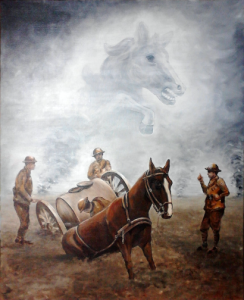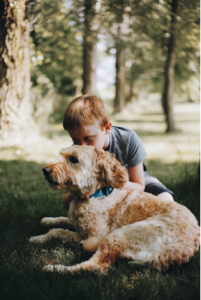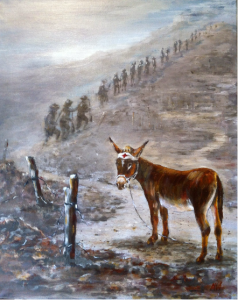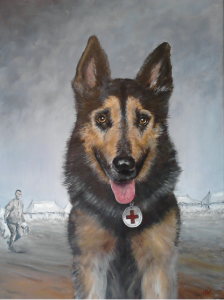When a Soulmate dies
Most of us are familiar with the term ‘soulmate’. In my years of counselling grieving widows and widowers, many described their deceased partner as their ‘soulmate’, rightfully assuming that I would understand how that term indicated the depth of their connection and the intensity of their grief.
Assumptions and intuition aside, I have recently found myself wanting to know a little more accurately what ‘soulmate’ really means. What I learned was fascinating and enlightening and has given me a much broader understanding of the connections we all create in our lifetime.
I’ll start with a collection of definitions: a soulmate is someone with whom you share goals, values and ethics; someone you connect with easily and with whom you feel a strong affinity; someone who helps you complete yourself; someone who hears your unspoken thoughts and feels your pain; a soul mate is like a twin reflection of yourself; someone who will hold your hand and walk with you in darkness and rejoice with you in the light; there is no jealousy with a soulmate and they are not threatened by time alone.
Apparently, for some, initial connection with a ‘soulmate’ can stimulate unrealistic expectations of living ‘happily ever after’, but, according to my reading and my lived experience, life with a ‘soulmate’ is not always harmonious. In any relationship there are rough edges to be refined as we, and the relationship, mature and develop. Whether the desire is conscious or not, most of us want to change some aspects of ‘the other’, no matter how small the desired change may be.

When we begin a new relationship, whether with a partner, friend or colleague, we bring with us the history of our lives, the emotional and physical ‘scars’ of living, and familiarity with the dynamics of our family of origin. Whether the new relationship involves only one other, or a group of others, we consciously or unconsciously attempt to re-create the familiar relationship dynamic of our early lives. We can do this from the perspective of believing ‘our way is the best way of doing things’, or from the perspective of wanting the new relationship experience to be very different to one that may have caused distress in our early life, or in other situations. Entry from either point can have the same result – a power struggle.
With a ‘soulmate’, power struggles might be non-existent, short-lived, or only appear very occasionally. As a relationship counsellor with many years of experience, I confess to being a tiny bit sceptical when a very small minority of folk have assured me ‘we’ve never spoken a cross word to each other in 50 years’. I find myself with internal questions such as ‘but did you have cross thoughts, and if so, what stopped you from expressing them?’
If we engage with life, and with people in our lives, with passion and enthusiasm, we’re likely to irritate people at times, disagree with them and argue, or debate as some prefer to say, and occasionally make them so cross they feel like defenestrating us. Michelle Obama confessed to such thoughts in her relationship with Barack, but the relationship remains strong and resilient, and they’ve never walked away from it. Their relationship is an investment in life that they are prepared to keep working on, and they reap the rewards.
So let’s look a little deeper – what does ‘soulmate’ really mean? What is ‘soul’? Isn’t soul another word for ‘spirit’? Would we call someone a ‘soulmate’ if we aren’t religious?
Heart, Soul and Spirit

According to ancient Greek and Hebrew, soul simply means the life that a being has. It refers to people and animals on the earth, to birds in the air, and to living creatures under the sea. Biblical teachings clearly say that souls die and are not immortal.
Once again, as defined in ancient Greek and Hebrew translations, ‘spirit’ means the ‘life force’ – the invisible spark of life that animates all living creatures. At the moment of death, the ‘spirit’ or life essence leaves the body and returns to its source. The term ‘returns to its source’ is determined by our belief system and means different things to different people. What matters here is that soul and spirit are not interchangeable terms.
When we use the expression ‘… entered into …with heart and soul’ – a relationship, an endeavour, a belief – we mean (according to these definitions) that the person entered into the experience with all of their being – with body (soul) emotional feeling, and hopefully with intellect.
Again, if we use these definitions, we can broaden our understanding of the relationships of soul mates to include relationships with all living things.
Broadening our understanding of Soulmates

Ideally, our first intimate connections with other ‘souls’ are with our parents, but life isn’t always ideal. Across the world, some children form their first meaningful relationships with pets and even when loving parents are in the picture, children’s relationships with other living creatures can be heart-warming to observe. Countless movies bear testament to the strength of these bonds and the roles animals in particular can play in the lives of children – they can indeed be ‘soulmates’.
When a child’s loved pet, their ‘soulmate’, dies, they may feel heartbroken. At these times, we, as adults, have an invaluable opportunity to model healthy expressions of grief, to acknowledge and honour the special qualities of the pet, what it has contributed to the life of the child and to the family, and how it will be remembered. If the pet dies at home, we can take photos, wrap the pet in a special blanket, dig a grave, make a ‘coffin’, plan a burial service, and encourage the children to place letters, cards, and toys the pet loved in the coffin. Hopefully, we will be able to resist the temptation to immediately replace the pet who died with a new one.
Children learn from our behaviour how their own death might be responded to. Consciously or unconsciously, they will be comforted by the knowledge that in this family we are important in life and in death, that our place in the family will always be ‘our place’ – that we will be remembered with love.
Some adults also describe animals as ‘soulmates’. A loved pet to many folk is more than ‘a dog’ or ‘a cat’ as others might describe them – they can be an important part of a family circle. A family member. When a family pet dies and the whole family grieves, or some members grieve and others don’t, dismissive comments like ‘it was only a dog, cat, bird…’ can hurt. I don’t imagine many people would be game to say that to me or my husband if our beloved family member – Saffi – died. Our attachment to her is as deep as hers is to us.

As I write, I’m also picturing paintings my brother in law did for an art exhibition for the ANZAC centenary – paintings of horses and dogs who died in the first world war. Heartbreakingly beautiful images. Men, often very young, certainly homesick and frequently afraid, formed deep relationships with the animals who carried them to safety, fought alongside them, and slept beside them to keep them warm. They formed deep and significant bonds with these beautiful creatures, loving them for their own sake, and sometimes transferring and expressing feelings to them that they couldn’t express to loved folk back home. When the animals died, they were mourned. Every time my husband and I drive past the highway memorial to the horses of war on our way to Canberra, I’m touched and feel a lump in my throat as I remember their significance.
Some years ago I was asked by a journalist if I supported the idea of compassionate leave after the death of a pet. My response was a firm YES.
Anyone who experiences the death of a soulmate deserves compassionate understanding and compassionate leave. The ability to form attachments to living things is an important aspect of all that we are, and the quality of those attachments, when reciprocal, gives meaning to our lives. When death occurs and ‘spirit’ leaves the body and returns to its source, the relationship is no longer reciprocal. It’s that absence of reciprocity that we grieve.

For many people in our community, reciprocity ends long before death occurs.
Marriages may end in divorce, often when separation is desired by only one partner; friendships can be fractured without explanation, and parents and children can become estranged for reasons not always fully understood.
Some partners, parents, children or siblings grieve when their ‘soul mate’ – a dearly loved person – slowly disappears into the mists of dementia, mental illness or drug dependence. Loving, in these circumstances, tends to become linear, a one way street, different to the kind of reciprocal loving which is tangible and ‘feeds the circle’ of our life. For many, grief becomes a lonely, chronic, daily experience, continually changing, as loss builds upon loss.
Final Thoughts

In this strange, unfamiliar time of social distancing, many of us have time for reflection. A productive exercise at this time might be for us all to ask ourselves who, or what, we would currently classify as a ‘soulmate’. How do we imagine reacting if that ‘soulmate’ died? What would the empty ‘heart space’ be like? What has that ‘soulmate’ contributed to our lives? How would we memorialise and honour that relationship?
If our ‘soulmate’ has already died, we could think about how we reacted at the time. Then, using the broad definition of the term I described earlier, ask ourselves if we’ve been able to form new attachments with other ‘soul mates’ since their death. Has that new attachment to another being enhanced our ability to live with grief? Has it been a way of honouring the ‘soulmate’ we grieve, as if loving them, or it, increased our ability to love, and to include others in our lives?
For those experiencing chronic grief as reciprocal relationships end, or fade away, it might be helpful to ask ourselves whether we’ve begun not only to broaden our understanding of the term ‘soulmate’, but whether we’ve begun to expand who and what we include in the circle of our lives. What else could help to fill those empty spaces, albeit differently? Is it the things that we take in, or things that we give out that are most helpful?
 Anything that stimulates our senses – touch, taste, smell, sound, sight, or encourages us to move – reminds us that we’re alive. As the joy of one connection is lost, or diminishes, we can benefit from including other connections – connections with music, poetry, literature, beautiful scenery, good food, the perfume of trees and flowers, the touch of a hand, exercising, travelling, creating, and sharing thoughts and feelings in writing or in conversation.
Anything that stimulates our senses – touch, taste, smell, sound, sight, or encourages us to move – reminds us that we’re alive. As the joy of one connection is lost, or diminishes, we can benefit from including other connections – connections with music, poetry, literature, beautiful scenery, good food, the perfume of trees and flowers, the touch of a hand, exercising, travelling, creating, and sharing thoughts and feelings in writing or in conversation.
We all need a ‘soulmate’ – people or things with whom we connect instantly and easily to give our lives meaning and depth. And if you, the person reading this Blog, are currently grieving, hopefully you will find ‘someone who will walk with you in darkness until you re-find the light’. Counsellors at ‘A Friends’ Place’ have temporarily filled that role for many people, understanding their pain, and rejoicing with them as they re-connect with life.
Help
Help is always available – at ‘A Friend’s Place’ or by contacting our outreach service.
Dianne McKissock OAM
NCCG Outreach Support Service
Email support for dying and bereaved people and anyone involved in their care






